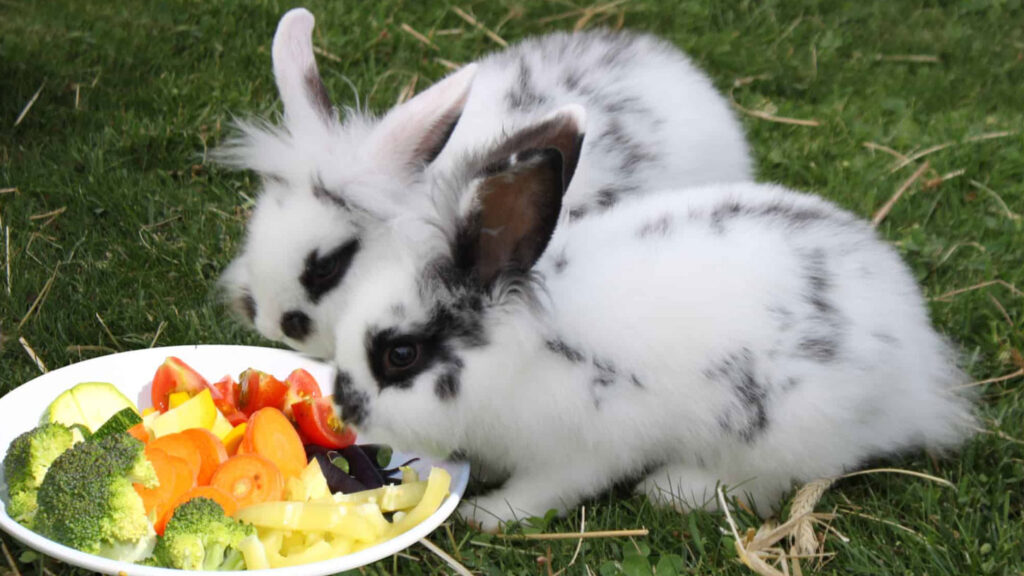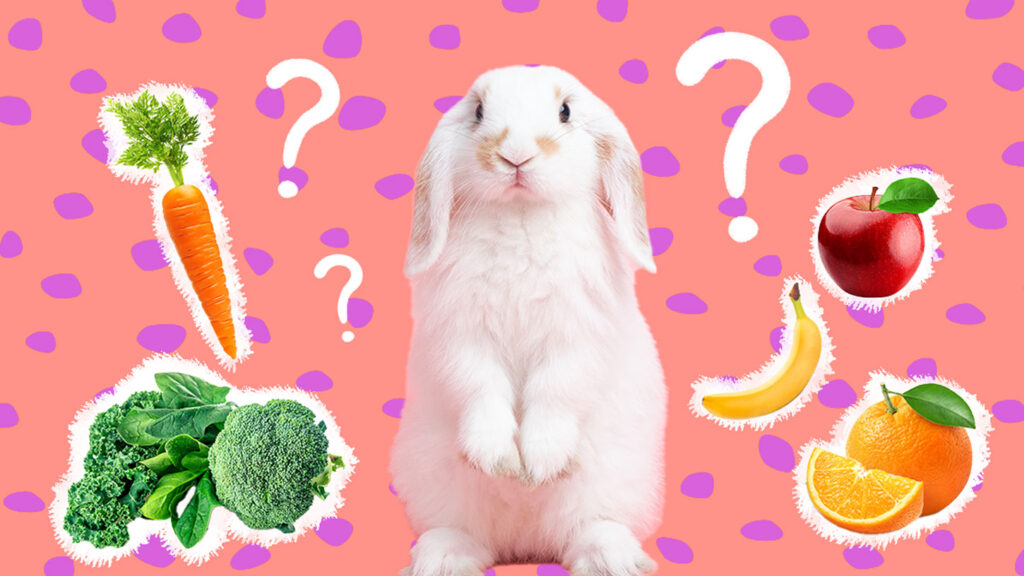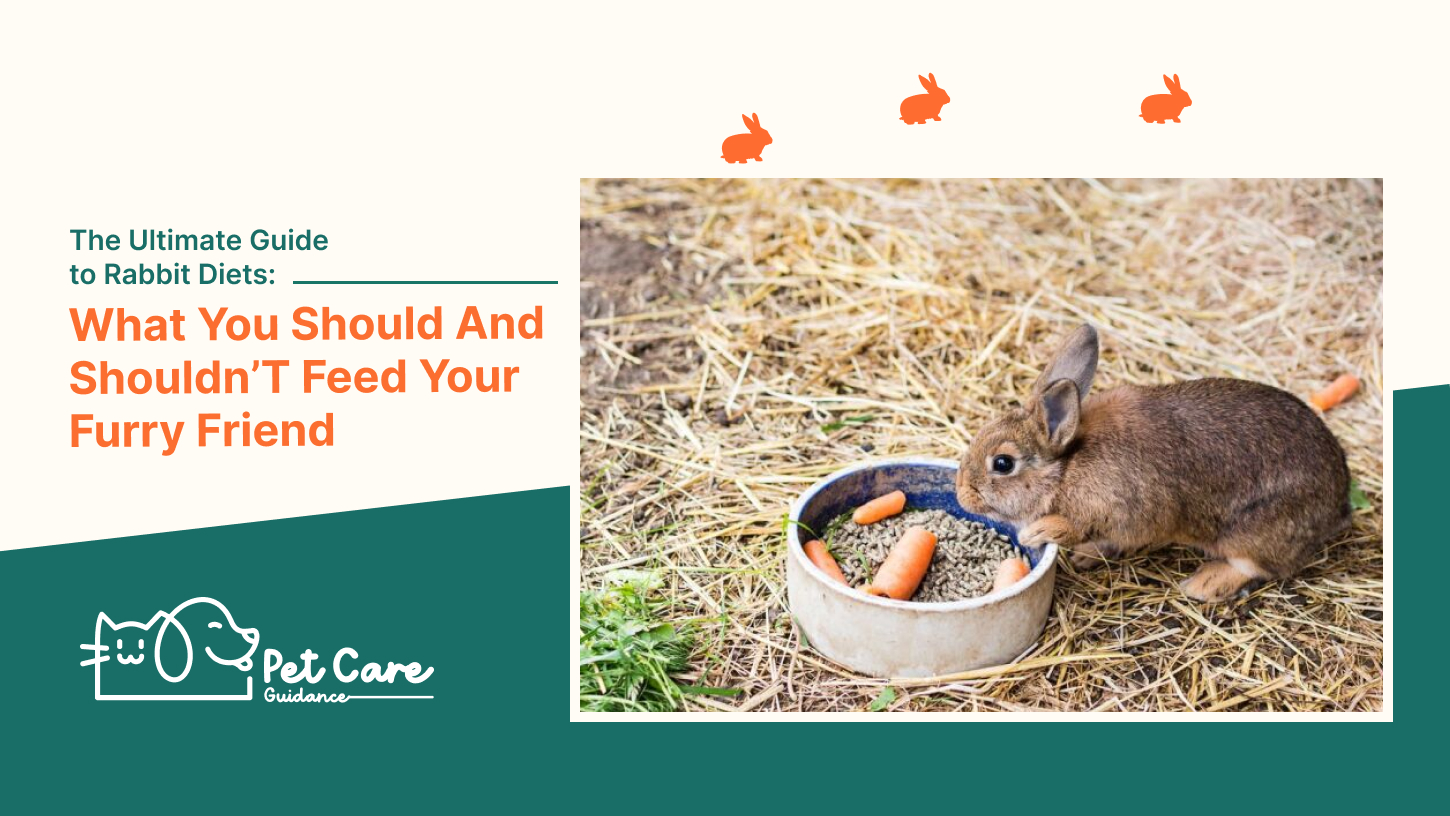Discover the ultimate guide to rabbit diets – what you should and shouldn’t feed your furry friend. A rabbit’s diet should consist mainly of hay or fresh grass, with small amounts of specialist rabbit food like pellets.
It’s important to avoid feeding them foods like avocado, iceberg lettuce, and garlic. Additionally, rabbits can enjoy fruits like strawberries, grapes, and pineapples in moderation. Providing the right diet is essential for your rabbit’s welfare and overall health. In this comprehensive guide, we’ll cover everything you need to know about feeding your rabbit to ensure they live a happy and healthy life.
So let’s dive in and learn what foods are best for your furry friend.
What Not To Feed Rabbits
Rabbits are adorable creatures that require a carefully balanced diet to stay healthy and happy. While there are many foods that rabbits can safely consume, there are a few that should be avoided. This includes:
- Avocado: Avocado is toxic to rabbits and can lead to serious health issues.
- Iceberg lettuce: Iceberg lettuce has little nutritional value and may cause digestive problems.
- Garden rhubarb: Garden rhubarb contains oxalic acid, which can be harmful to rabbits.
- Garlic: Garlic can cause digestive upset and should not be given to rabbits.
It’s important to remember that rabbits are herbivores and their diet should primarily consist of hay or dried/fresh grass. A small amount of high-quality rabbit food, such as extruded nuggets or pellets, can be given. Additionally, fresh greens and a limited variety of fruits can be offered as treats. Always consult with a veterinarian to ensure you are providing the best diet for your furry friend.
What Human Food Can Rabbits Eat
Celery
Rabbits can safely enjoy celery in small quantities. It is a low-calorie vegetable that provides hydration and helps with digestion due to its high water and fiber content. However, it should only be given as an occasional treat as part of a balanced diet. Too much celery can cause gas or diarrhea in rabbits, so it’s important to feed it in moderation. Remove any leaves or tough celery strings before offering it to your furry friend, as they can be difficult to chew and digest.
Apple
Apples can be a tasty and healthy treat for rabbits. They are a good source of vitamins and fiber. However, it’s important to remove the seeds and core before feeding them to your bunny, as these parts can be harmful. Limit the amount of apple given to your rabbit to avoid excessive sugar intake, as too much can lead to digestive problems. Always introduce new foods gradually and monitor your rabbit’s response to ensure they tolerate apples well.
Banana
Rabbits can enjoy bananas as an occasional treat. It’s important to note that bananas are high in sugar, so they should be given sparingly. Too much sugar can disrupt a rabbit’s digestive system and lead to obesity. Offer small pieces of ripe banana as a special snack, and make sure to remove any peels before serving. Monitor your rabbit’s reaction to bananas and adjust the amount accordingly to prevent any negative health effects.
Blueberry
Blueberries can be a delicious and nutritious addition to a rabbit’s diet. These small fruits are packed with antioxidants and vitamins. However, like any fruit, they should be given in moderation due to their natural sugar content. Offer a few blueberries as an occasional treat, ensuring they are fresh and properly washed. Remember to introduce new foods gradually and monitor your rabbit’s response to ensure they tolerate blueberries well.

Best Food For Rabbits
| Best Food for Rabbits |
|---|
| Hay |
| Watercress |
| Brussels sprout |
| Cabbage |
| Cauliflower |
| Leaf vegetable |
When it comes to the best food for rabbits, **hay** is an essential component of their diet. It should be available throughout the day and night. Rabbits need the fiber from hay to keep their digestive system healthy. In addition to hay, rabbits can also be fed **watercress**, **Brussels sprouts**, **cabbage**, **cauliflower**, and **leaf vegetables**. These leafy greens provide additional nutrients and variety to their diet.
However, it’s important to introduce new foods gradually and in small quantities to avoid digestive issues. Remember to always provide fresh water for your furry friend. Consulting a veterinarian for specific dietary recommendations is recommended to ensure your rabbit is getting a balanced and healthy diet.
What Fruits Can Rabbits Eat
| What Fruits Can Rabbits Eat | ||
|---|---|---|
| Watermelon | Strawberry | Raspberry |
| Grape | Pear | Pineapple |
Rabbits can enjoy a variety of fruits as part of their diet. Some fruits that rabbits can safely consume include watermelon, strawberry, raspberry, grape, pear, and pineapple. These fruits provide natural sugars, vitamins, and fiber to support the rabbit’s health.
When offering fruits to rabbits, it’s essential to feed them in moderation. Watermelon can be a refreshing treat for rabbits as it contains a high water content. Strawberries are a good source of vitamin C and antioxidants. Raspberries are rich in fiber and promote healthy digestion. Grapes can be given as an occasional treat, but it’s important to remove the seeds and avoid feeding too many due to their high sugar content.
Pears are a great source of dietary fiber and can be fed to rabbits, but it’s important to remove the seeds and core. Pineapple can be fed in small amounts as it contains bromelain, an enzyme that may cause mouth irritation in some rabbits. It’s always recommended to introduce new foods gradually and monitor your rabbit’s response to ensure they are enjoying a balanced diet.
What Is The Ideal Diet For A Rabbit?
|
Rabbits should have hay or dried or fresh grass during the day and night. Green plants and a small amount of high quality specialist rabbit food such as extruded nuggets or high quality pellets should make up the rest of your rabbit’s diet. |
What Are Some Foods That Rabbits Cannot Eat?
Pasta should be avoided as it is high in carbs and starch, which can cause digestion issues for rabbits. Meat is also not suitable for rabbits as they are herbivores designed to eat plants. Dog, cat, hamster, and bird food may be nutritionally unbalanced and could contain ingredients that are harmful to rabbits. Finally, coffee and coffee beans are toxic to rabbits and consumption can be fatal.

What Fruits And Vegetables Can Rabbits Eat Daily?
The best foods for rabbits include a variety of fruits and vegetables that can be fed daily. Some of the suitable options are:
| Asparagus |
| Bok Choy |
| Brussel Sprouts |
| Broccoli leaves |
| Celery |
| Collard Greens |
| Cauliflower leaves and stalks |
| Chicory |
Rabbits should have a balanced diet consisting mainly of hay, along with a smaller amount of fresh vegetables and a limited number of pellets. Hay is an essential part of their daily intake, providing the necessary fiber for their digestive system. Additionally, a small portion of high-quality rabbit food, such as extruded nuggets or pellets, can be included in their diet.
It’s important to note that not all fruits and vegetables are suitable for rabbits. Some foods, such as avocado, iceberg lettuce, garden rhubarb, and garlic, should be avoided as they can be harmful to rabbits. It’s always best to consult with a veterinarian or rabbit expert to ensure that you are providing the right diet for your furry friend.
What Salad Can Rabbits Eat?
Rabbit’s diet should consist of hay, green plants, and a small amount of high-quality specialist rabbit food. Hay or dried grass should be available during the day and night to ensure proper digestion and dental health. For a healthy salad option, rabbits can enjoy romaine lettuce, red leaf lettuce, green leaf lettuce, butter or Boston lettuce, and a spring mix of greens. These leafy greens provide essential nutrients and hydration. It is important to avoid feeding rabbits food that is harmful to their health and digestion, such as iceberg lettuce, avocado, or garlic. Additionally, rabbits can enjoy a variety of fruits in moderation, including watermelon, strawberry, raspberry, grape, pear, and pineapple. Overall, a balanced and varied diet is essential for a rabbit’s well-being.
Feeding Your Rabbit
Feeding Your Rabbit
Rabbits should have a daily diet of mostly hay, a smaller amount of fresh vegetables, and a limited number of pellets. Hay is the most important part of a rabbit’s daily intake. Unlimited, high-quality grass hay, such as Timothy, orchard or brome, should make up the bulk of a rabbit’s diet.
Fresh vegetables can be given in moderation and should include options like celery, carrots, and leafy greens. It is important to introduce new vegetables slowly to avoid digestive issues.
Pellets should only be given as a supplement, as an excess can lead to obesity. Choose pellets that are specifically made for rabbits and avoid ones with added sugars or artificial ingredients.
Remember to always provide fresh water for your furry friend and consult with a veterinarian for specific dietary recommendations based on your rabbit’s age, weight, and health status.
Frequently Asked Questions On The Ultimate Guide To Rabbit Diets: What You Should And Shouldn’T Feed Your Furry Friend
What Is The Ideal Diet For A Rabbit?
The ideal diet for a rabbit consists of hay or grass, green plants, and a small amount of high-quality specialist rabbit food. Hay should be available during the day and night, while the rest of the diet should include fresh or dried grass, vegetables, and high-quality pellets.
Avoid feeding rabbits avocado, iceberg lettuce, rhubarb, garlic, pasta, meat, dog/cat/hamster/bird food, coffee, and coffee beans. Offer fruits like watermelon, strawberry, raspberry, grape, pear, and pineapple in moderation.
What Are Some Foods That Rabbits Cannot Eat?
Rabbits cannot eat pasta, meat, dog/cat/hamster/bird food, coffee/coffee beans. (19 words)
What Fruits And Vegetables Can Rabbits Eat Daily?
Rabbits can eat fruits and vegetables like asparagus, bok choy, Brussel sprouts, broccoli leaves, celery, collard greens, cauliflower leaves and stalks, and chicory.
What Salad Can Rabbits Eat?
Rabbits can eat a variety of salad greens such as romaine, red leaf lettuce, green leaf lettuce, butter lettuce, and spring mix of greens. However, avoid iceberg lettuce as it has low nutritional value.
Conclusion
It is important to carefully consider what you feed your rabbit to ensure their overall health and well-being. Stick to a diet that includes hay or dried grass as the main component, with a small portion of high-quality rabbit food and fresh greens.
Avoid feeding them foods that can be harmful, such as avocado, iceberg lettuce, garlic, and pasta. Remember, providing a balanced and appropriate diet is key to keeping your furry friend happy and healthy.


